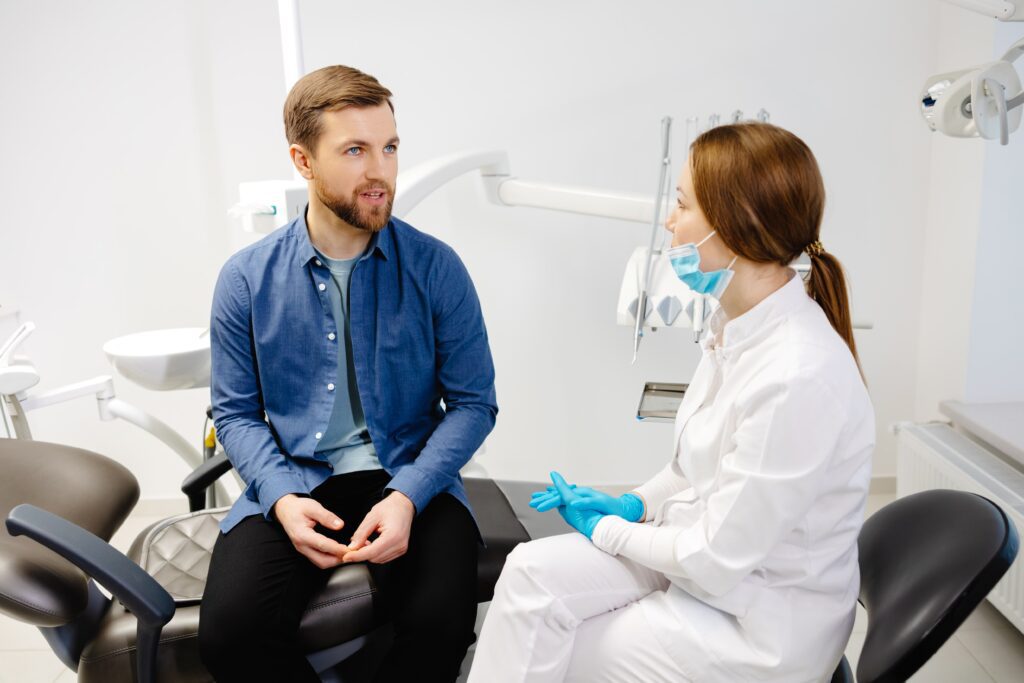Why do my burps taste like eggs? If your burps taste or smell like eggs, it’s usually from hydrogen sulfide gas created when bacteria break down sulfur-containing foods in your stomach. Common culprits include eggs, garlic, meat, and broccoli, as well as indigestion, acid reflux, or gut bacteria imbalance. It’s often harmless but can signal digestive issues if it happens frequently.
Highlights
- “Eggy” burps are caused by hydrogen sulfide gas from sulfur-rich foods or digestion issues.
- Acid reflux, slow digestion, or bacterial overgrowth may make the smell worse.
- Foods like eggs, garlic, red meat, and cabbage are common triggers.
- You can reduce sulfur burps by changing diet, hydrating, and improving oral hygiene.
- If they persist, see a doctor or dentist to rule out infection or reflux.
When Your Burps Smell Like Rotten Eggs
Burping is completely normal. It’s your body’s way of releasing swallowed air. But when your burps have a rotten-egg taste or odor, it can feel uncomfortable, embarrassing, and confusing.
That unpleasant sulfur smell typically comes from something happening in your digestive system. Fortunately, it’s rarely serious and can often be solved with a few simple changes. Let’s look at why these “sulfur burps” happen and what you can do to stop them.
What Causes Burps to Smell or Taste Like Eggs?

The eggy odor comes from hydrogen sulfide, a gas produced when bacteria break down food in your stomach or intestines. A few key things can trigger it, most related to what you eat and how your body digests food.
Sulfur-Rich Foods
Sulfur gives foods flavor and nutrition, but when broken down, it releases that distinct rotten-egg smell.
Common sulfur foods include:
- Eggs
- Red meat
- Garlic and onions
- Broccoli, cauliflower, and cabbage
- Certain protein powders
If you’ve had a sulfur-heavy meal, those burps are simply your body processing what you ate.
Indigestion or Slow Digestion
When your stomach empties slowly, food ferments longer, producing more gas and odor. This can happen after eating too fast, overeating, or choosing greasy, fried foods that take longer to digest.
Acid Reflux (GERD)
If you notice a sulfur taste along with a sour or burning feeling, you might have acid reflux. Reflux allows stomach acid and its gases to travel upward, which can also cause bad breath or enamel erosion if not treated.
Food Intolerances
People sensitive to lactose or gluten may not fully digest these foods, leading to excess gas and sulfur burps. You might also notice bloating, cramps, or diarrhea alongside the bad taste.
Bacterial Overgrowth (SIBO)
Too many bacteria in your small intestine, known as SIBO, can lead to fermentation of undigested food. The result? More hydrogen sulfide gas and persistent eggy burps.
Infections or Gastrointestinal Issues
Occasionally, sulfur burps can signal infections like Giardia or H. pylori, especially if you have stomach pain, fatigue, or nausea. If symptoms linger, talk to your healthcare provider.
How to Get Rid of Burps That Taste Like Eggs

Most of the time, sulfur burps go away once your body clears the gas. But if they happen often, a few lifestyle adjustments can help stop them for good.
Watch What You Eat
Try avoiding sulfur-heavy foods for a few days, especially eggs, garlic, and red meat, to see if it makes a difference.
Swap in lighter proteins like fish or chicken and plenty of fruits and vegetables.
Eat Slowly and Mindfully
Rushing meals makes you swallow more air, which increases burping. Smaller bites and slower chewing help digestion run smoothly.
Stay Hydrated
Water keeps food moving through your system and helps flush out extra gas. Skip sodas and sparkling drinks, which can trap more air in your stomach.
Try Ginger or Peppermint Tea
Both are natural digestive aids that can calm your stomach. If you have reflux, stick with ginger, peppermint can relax the muscles at the top of your stomach and worsen heartburn.
Improve Your Oral Hygiene
Sometimes the smell isn’t only from your stomach, it’s from bacteria in your mouth. Brush twice a day, floss daily, and don’t forget to clean your tongue to keep sulfur-producing bacteria at bay.
Limit Alcohol and Smoking
Alcohol irritates your stomach lining, and smoking can dry your mouth and increase bad-smelling gases. Cutting back can help reduce sulfur burps and improve overall oral health.
When to See a Dentist or Doctor

Occasional sulfur burps are normal, but if they happen frequently or come with other symptoms, it’s worth checking in with a professional.
You should see your doctor or dentist if you notice:
- Persistent burps for several days
- Ongoing stomach pain, nausea, or acid reflux
- Bad breath that doesn’t improve with brushing
- Changes in digestion or bowel habits
Related Reading: Why Do I Have Bumps On My Lip?
Sometimes the issue starts in your stomach, but your dentist can spot oral signs of reflux or infection that may be contributing to the odor.
FAQs
Are sulfur burps dangerous?
Not usually. They’re often related to diet or mild digestion issues. But persistent sulfur burps may point to infection or reflux.
Can brushing your teeth stop sulfur burps?
Good oral hygiene helps remove odor-causing bacteria, but if the smell comes from your stomach, you’ll also need to address digestion.
How long do sulfur burps last?
Most clear up within a few hours to a day once your stomach empties or the trigger food passes.
Do probiotics help?
Yes. Probiotics can balance gut bacteria, improving digestion and reducing gas production.
Can acid reflux make burps smell like eggs?
Yes. Reflux allows gases and stomach acid to travel upward, bringing that sulfur taste along with heartburn.
Eggy Burps Are Common But Pay Attention to Patterns
Burps that taste like eggs might not sound pleasant, but they’re usually harmless and linked to what you eat or how you digest food.
Simple lifestyle changes like slowing down at meals, staying hydrated, and maintaining good oral care can help keep them from returning.
If you notice frequent sulfur burps, acid reflux, or bad breath that won’t go away, it’s time to schedule a check-up. Your dentist or doctor can identify whether it’s digestive, dietary, or oral in origin.
If your burps, breath, or taste changes are sticking around, Dr. Joyce can help you pinpoint the cause.
Follow on Instagram for daily dental and wellness tips.





















